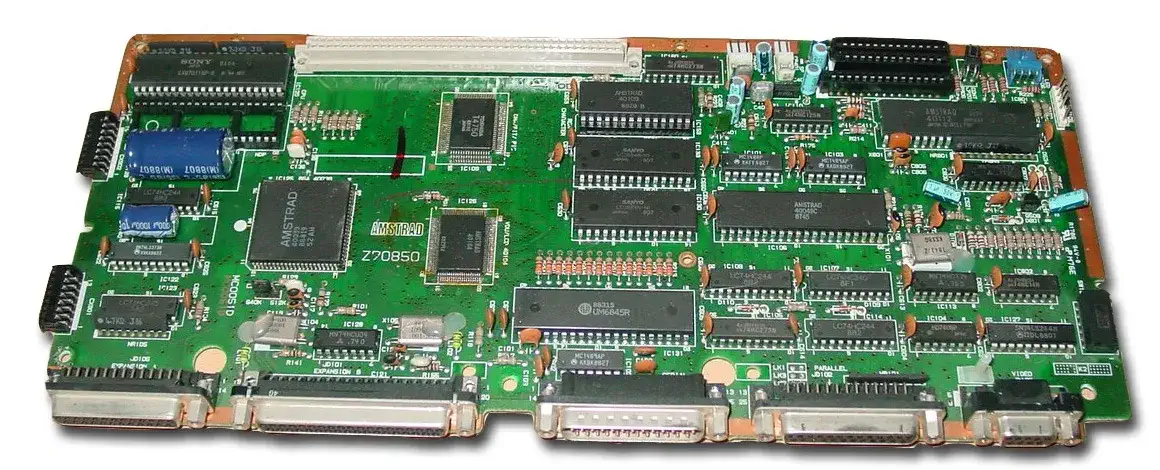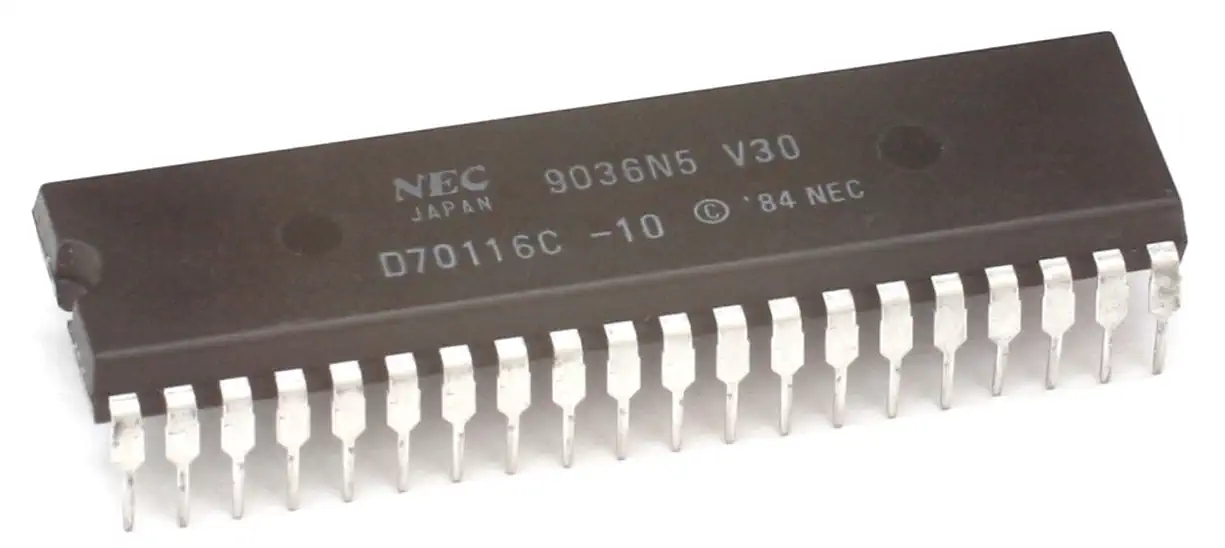Amstrad PPC 512
The Amstrad PPC 512 and the later PPC 640, were portable PC-XT clones made by Amstrad. The machines had a keyboard and a monochrome LCD display and could run off of batteries or a 12V power source. Both had one or two double density double sided floppy disk drives, and the PPC640 also came with a modem. Software provided was the PPC Organizer and the PPC640 came with a communications package.
Key difference between the 512 and the 640 was the memory that was built in, and the modem. Both machines had a standard RS232, centronics printer port and CGA/MDA video output. The batteries needed to run the unit were massive, Ten C-size batteries were needed making the machine a power hog.




NEC V30 CPU
The NEC V30 was a version of the NEC V20 that was pin compatible with the Intel 8086 processor. It also supports a 8080 emulation mode. The V30, running up to 10MHz, could be used as an upgrade for the 8086.
In 1984 Intel filed a lawsuit against NEC, claiming that the microcode of the V30 infringed on its patent for the 8088 and the 8086 processors. The courts ruled that microcode is protected by copyright, but that Intel had forfeited it, by neglecting to ensure that second-source chips were suitably marked. It also noted that the microcode of the V30 was not a copy of Intel's.



